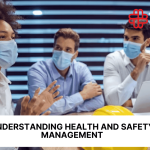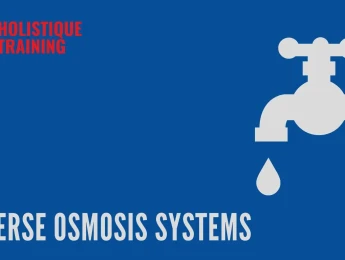Working in the healthcare industry automatically means that you’re faced with an array of challenges. These could be related to processes and equipment or patient service and care. Healthcare is such a massive part of everyone’s life that we must focus on managing healthcare services to ensure everyone receives the care they need.
To achieve the best outcomes, it’s important to introduce hard-working and dedicated individuals into the field and uncover the most innovative solutions to create a forward-thinking environment for colleagues and patients alike.
Management means overseeing people and processes, which can cause stress, especially in a field that is essential to people’s lives. But with good management tools and techniques, you can develop a team of productive, positive, and motivated people working towards one collective goal—to improve the future of healthcare.
Upon completion of this course, participants will be able to:
- Enhance your quality of work and improve the overall patient experience.
- Become a positive beacon in your workforce, encouraging improvement and change.
- Create clear, achievable goals for you and your team going forward.
- Ensure your team is prepared and up to date with new technologies.
- Guarantee that you and your co-workers make the right strategic decisions in a timely manner.
- Ensure you are displaying modern and reasonable management skills.
- Listen to co-workers and provide suitable managerial strategies to aid positive change.
- Create patient journey maps and develop better procedures with your patients in mind.
This course was designed for anyone within the health care system who has stepped up and is taking charge, a beneficial member of any team who helps things run smoothly. It would be most beneficial for:
- Healthcare Development Manager
- Project Manager
- Head Nurse
- Head Pharmacist
- Therapist
- Head Doctor
This course uses various adult learning methods to provide a complete and proper understanding of management. This exclusive program will provide participants with various interactive teamwork activities to improve communication and quick thinking.
They will experience video examples to really help the participant understand more in-depth management styles in a highly encouraging, inspired environment with like-minded professionals. They will be provided with exciting management techniques and tools and will have a chance to put their new skills to the test using role-playing scenarios.
Day 5 of each course is reserved for a Q&A session, which may occur off-site. For 10-day courses, this also applies to day 10
Section 1: Fundamental Features in Healthcare
- Learning to differentiate health problems.
- Understanding key parts of the HC system.
- Core environmental and physical health.
- Dominant factors inside the health system.
- Key factors in worldwide health.
- Understanding the determinants of social health.
- Useful tips and tricks to ensure better health.
Section 2: Choreographing Quality in Your Organisation
- How am I going to build a strategic plan?
- Understanding the different levels of building your plan.
- Important factors for building and maintaining a good business relationship.
- Results in which you could earn from maintaining good relationships.
- Capable skills to benefit you as a professional.
- Following an idealistic business model in 10 steps.
- Operative and successful planning.
- Many examples of PI program documents in HCO.
- Learning how to be the best possible leader.
- The possibility of gaining extraordinary leadership skills and standing out.
- Addressing your co-workers' needs and ensuring you’re in a happy, healthy work environment.
Section 3: Management of Information as a Leader
- Validate your sources to the extent where you are certain.
- Make sure to Hypothesise before you plan.
- Introducing dead horse theory.
- Continuous use of the best quality tools.
- Always quality over quantity.
- Measuring your performance.
- Consistently having evidence as your backup.
Section 4: Maintaining Standards
- Quick-witted applications of standards.
- Best organisational surroundings.
- Developing a methodology for indicators.
- A deeper understanding of the different types of standards and indicators.
- The perfect way of measuring your indicators and standards.
- Proper use of systematic elements.
- Using and improving key attributes.
- Classification of indicators.
Section 5: Appropriate Authenticity
- Assessing the validity of information.
- Finding reasonable sourcing and making sense of it.
- Being coherent and simple while making sure your point is understood.
- Making sure that everything makes sense and is up to realistic standards.
- Extra strategies for staff of different backgrounds.
- Techniques and ways to strengthen work morale.
- Appropriate use and structure of programme reviews.
Upon successful completion of this training course, delegates will be awarded a Holistique Training Certificate of Completion. For those who attend and complete the online training course, a Holistique Training e-Certificate will be provided.
Holistique Training Certificates are accredited by the British Assessment Council (BAC) and The CPD Certification Service (CPD), and are certified under ISO 9001, ISO 21001, and ISO 29993 standards.
CPD credits for this course are granted by our Certificates and will be reflected on the Holistique Training Certificate of Completion. In accordance with the standards of The CPD Certification Service, one CPD credit is awarded per hour of course attendance. A maximum of 50 CPD credits can be claimed for any single course we currently offer.
- Course Code IND05-105
- Course Format Classroom, Online,
- Duration 5 days













